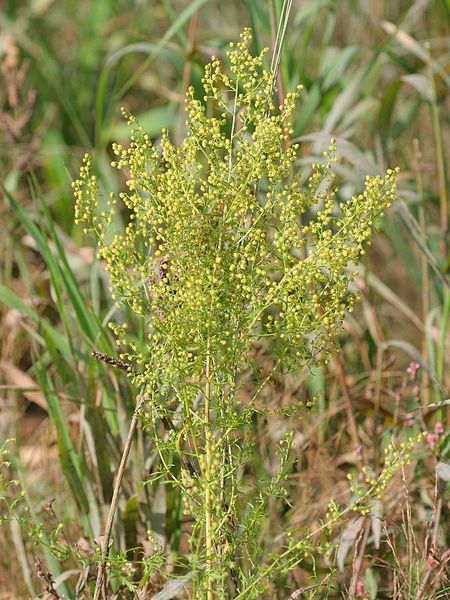 Artemisinin derivatives
Artemisinin derivatives
Common name
N/A
ID
HD0006
Scientific name of the plant
Artemisia annua
Anatomical part for use
stem
Human use
N/A
Summary
Artemisia annua, also known as sweet wormwood, sweet annie, sweet sagewort, annual mugwort or annual wormwood (Chinese: 黄花蒿; pinyin: huánghuāhāo), is a common type of wormwood native to temperate Asia, but naturalized in many countries including scattered parts of North America.An extract of A. annua, called artemisinin (or artesunate), is a medication used to treat malaria. Discovery of artemisinin and its antimalarial properties by the Chinese scientist, Tu Youyou, led to award of the 2011 Lasker Prize and 2015 Nobel Prize in Physiology or Medicine.
Evidence Level
Level 1 (Individual reports from one medical center)
Hepatotoxicity reports in literature
- Hepatitis temporally associated with an herbal supplement containing artemisinin - Washington, 2008 : (Source)
Hepatotoxicity Description
N/A
Traditional medicine
In traditional Chinese medicine (TCM), A. annua is prepared with hot water to treat fever. Due to duplication in ancient TCM sources, A. annua is more commonly referred to as qinghao (Chinese: 青蒿; pinyin: qīnghāo), the modern Chinese name for Artemisia carvifolia, as opposed to its current Chinese name huanghuahao. (Source: Wiki)

Common name
N/A
ID
HD0006
Scientific name of the plant
Artemisia annua
Anatomical part for use
stem
Human use
N/A
Summary
Artemisia annua, also known as sweet wormwood, sweet annie, sweet sagewort, annual mugwort or annual wormwood (Chinese: 黄花蒿; pinyin: huánghuāhāo), is a common type of wormwood native to temperate Asia, but naturalized in many countries including scattered parts of North America.An extract of A. annua, called artemisinin (or artesunate), is a medication used to treat malaria. Discovery of artemisinin and its antimalarial properties by the Chinese scientist, Tu Youyou, led to award of the 2011 Lasker Prize and 2015 Nobel Prize in Physiology or Medicine.
Evidence Level
Level 1 (Individual reports from one medical center)
Hepatotoxicity reports in literature
- Hepatitis temporally associated with an herbal supplement containing artemisinin - Washington, 2008 : (Source)
Hepatotoxicity Description
N/A
Traditional medicine
In traditional Chinese medicine (TCM), A. annua is prepared with hot water to treat fever. Due to duplication in ancient TCM sources, A. annua is more commonly referred to as qinghao (Chinese: 青蒿; pinyin: qīnghāo), the modern Chinese name for Artemisia carvifolia, as opposed to its current Chinese name huanghuahao. (Source: Wiki)